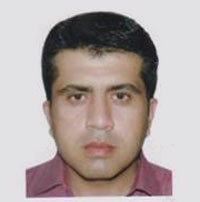Techno-economic and environmental analysis of electricity supply options in remote rural areas of South Africa
Introduction
The South African government is electrifying the residential sector using both grid and off-grid electrification options. As the off-grid option, they are supplying 50 Watt solar home systems (SHS) in remote rural areas [1]. A SHS of this size is hardly able to produce 0.3 to 0.4 kilowatt-hour (kWh) per day under the best conditions. This amount of energy is significantly smaller than the basic electric energy (BEE) system of 50 kWh per month being provided in South African cost-free to grid-connected low income households [2].
Methodology
In this research, different off-grid/micro grid options, producing the electric energy equivalent to the BEE were compared, not only with one another but also with grid options. These options are: wind alone with battery storage; solar (photovoltaics; PV) alone with battery storage; hybrid of wind and solar with storage; wind and solar hybrid with diesel generator with storage; and diesel generator alone for charging. For supply system reliability, the capacity considered per household was adjusted according to the type of supply option. For example, wind was considered with one-day backup and diesel generator without any additional storage and capacity. A techno-economic system analysis was carried out at provincial level for the 2013 to 2050 period. For analysis, the optimization modeling framework MESSAGE, developed at IIASA, was used with techno-economic data mostly from local sources. From the techno-economic analysis, it was found that currently, grid connection is marginally better than all off-grid if economics is regarded as the criterion for decision making. However, the gap is quite small, and off-grid options may surpass grid connection due to expected increase in grid connection cost and development in the off-grid technologies. Inclusion of other criteria like greenhouse gas (GHG) emissions, infrastructure security and safety, etc., further strengthen the case for off-grid options.
Conclusions
Among the available supply options, two were found most attractive next to grid connection across the country. In the Cape region, the photovoltaic (PV) and wind hybrid system is marginally close to grid connection. In the remaining regions, except Free State, PV alone with storage is the most attractive option among off-grid technologies due to relatively better insolation conditions. The case of the Free State is a challenging one, as both solar and wind resources are of moderate potential, especially in winter, making PV with diesel generator look like a better choice than the others. It can thus be concluded that off-grid options are more realistic options in South Africa to achieve the 97% electrification option target by 2020, especially considering the infrastructure required to electrify remote areas of the country.
References
[1] Bongwa K (2013). IEP Planning Report Workshop: Overview of universal energy access strategy, Department of Energy, South Africa, Johannesburg, South Africa.
[2] Adam F (2010). Free basic electricity: A better life for all. Earthlife Africa, Johannesburg, South Africa.
Supervisors
Charles Mbohwa, University Cape Town, South Africa
Holger Rogner, Transitions to New Technologies Program, IIASA
Manfred Strubegger, Energy Program, IIASA
Note
Noor Jamal of the European University, Flensburg, Germany, is a citizen of Pakistan and was funded by IIASA’s German National Member Organization during the SA-YSSP.
Please note these Proceedings have received limited or no review from supervisors and IIASA program directors, and the views and results expressed therein do not necessarily represent IIASA, its National Member Organizations, or other organizations supporting the work.

CONTACT DETAILS
Principal Research Scholar Exploratory Modeling of Human-natural Systems Research Group - Advancing Systems Analysis Program
Principal Research Scholar Systemic Risk and Resilience Research Group - Advancing Systems Analysis Program
Principal Research Scholar Cooperation and Transformative Governance Research Group - Advancing Systems Analysis Program
Further information
MESSAGE model


